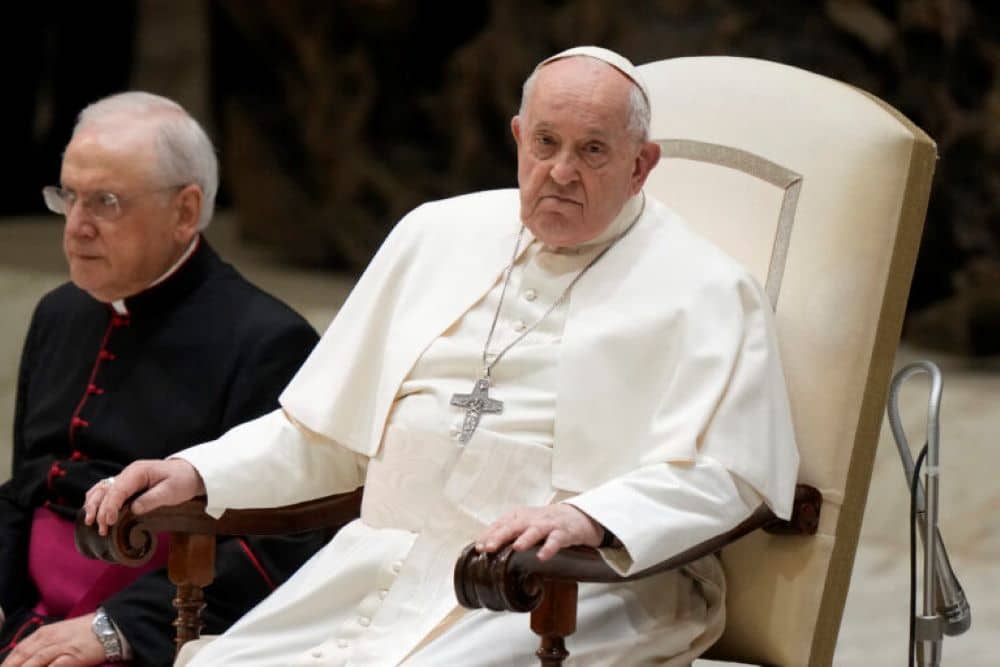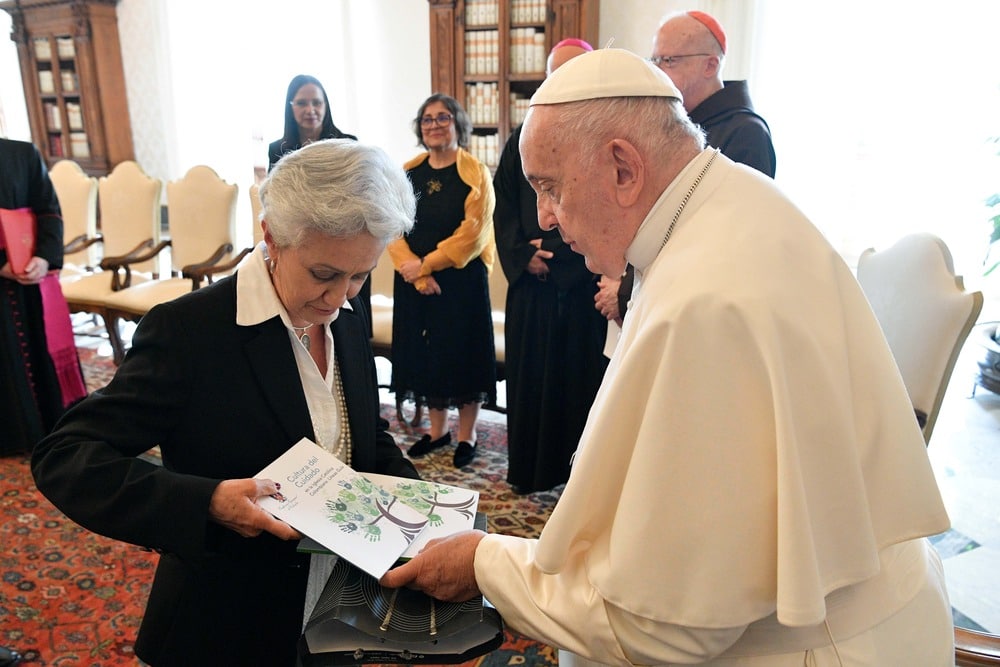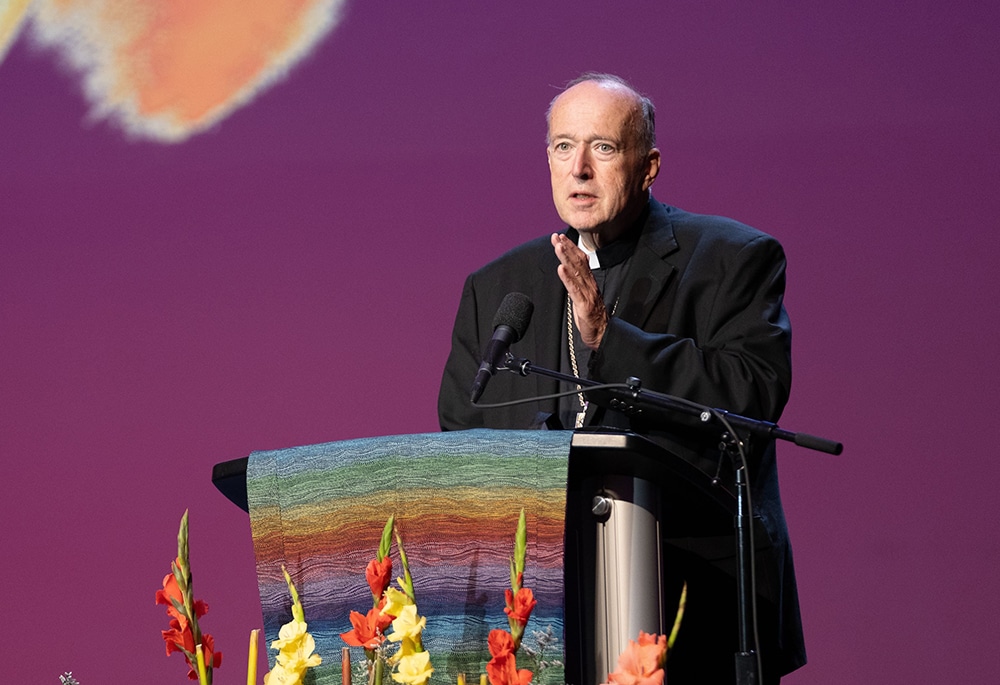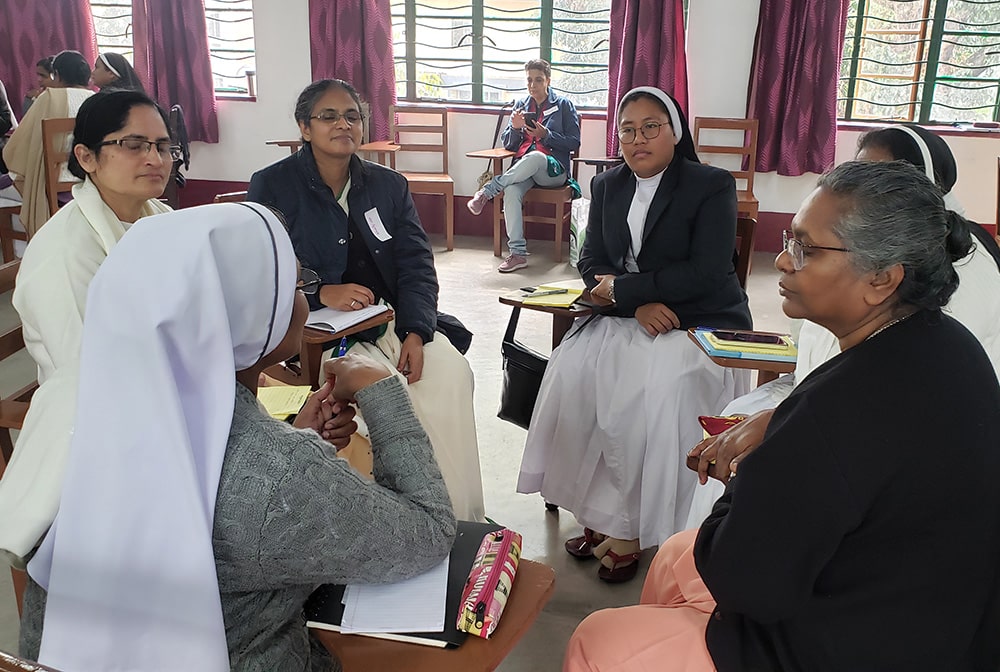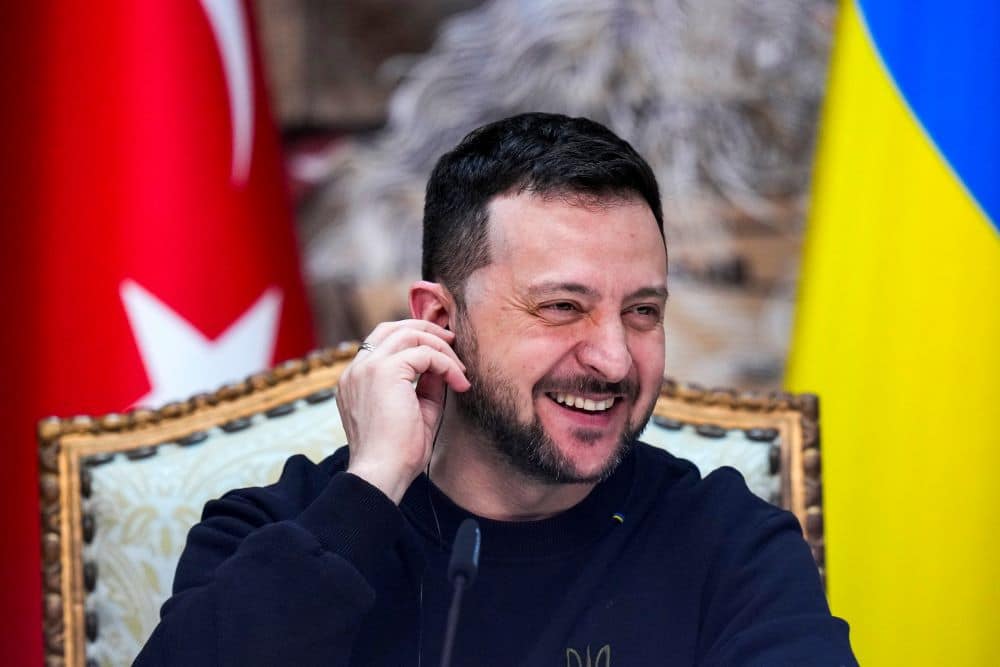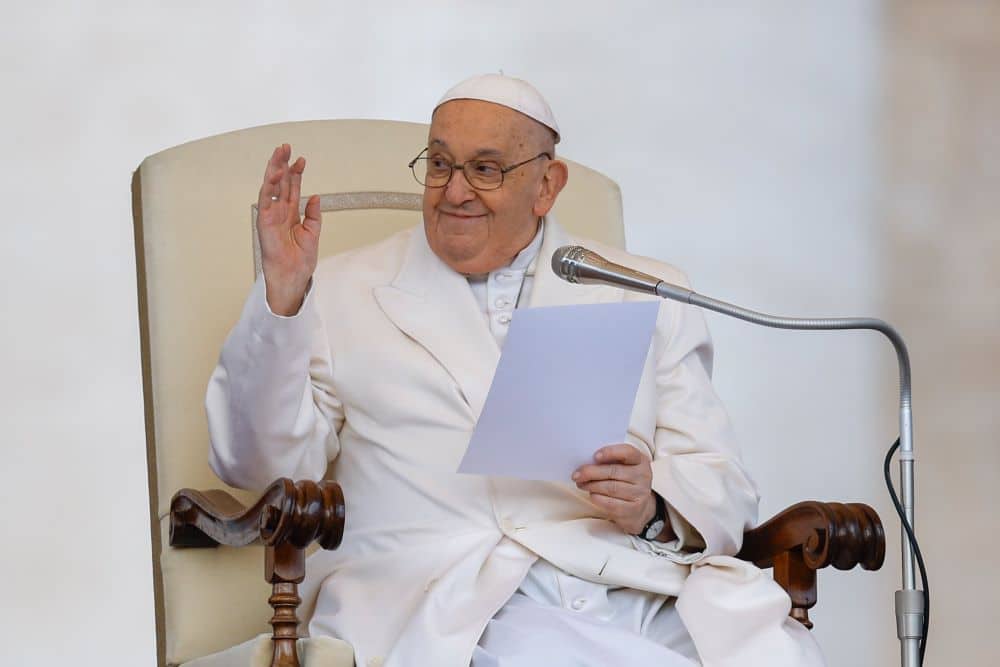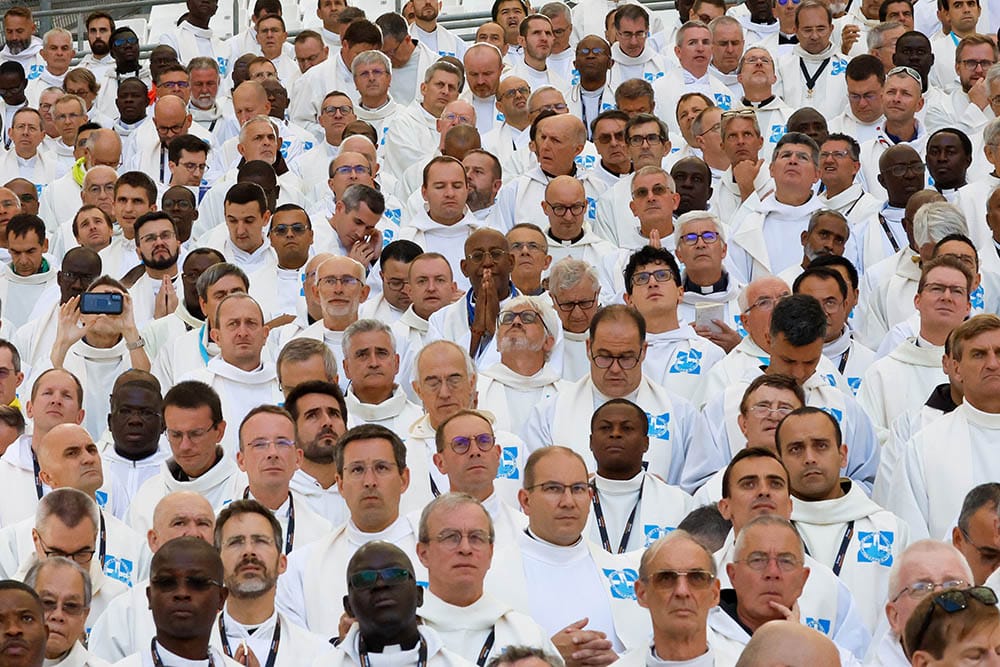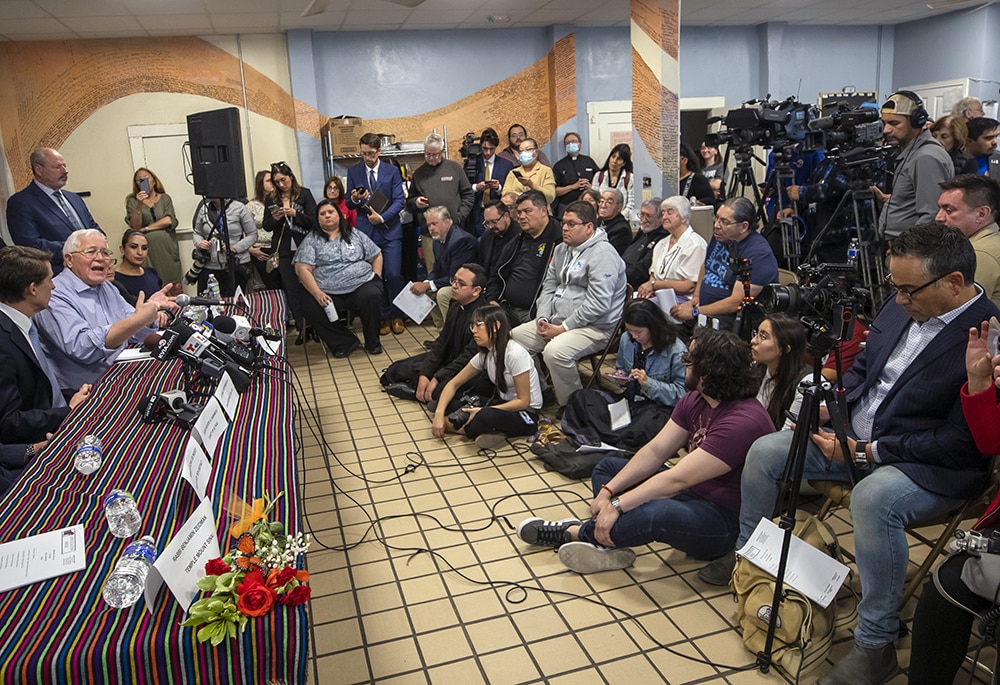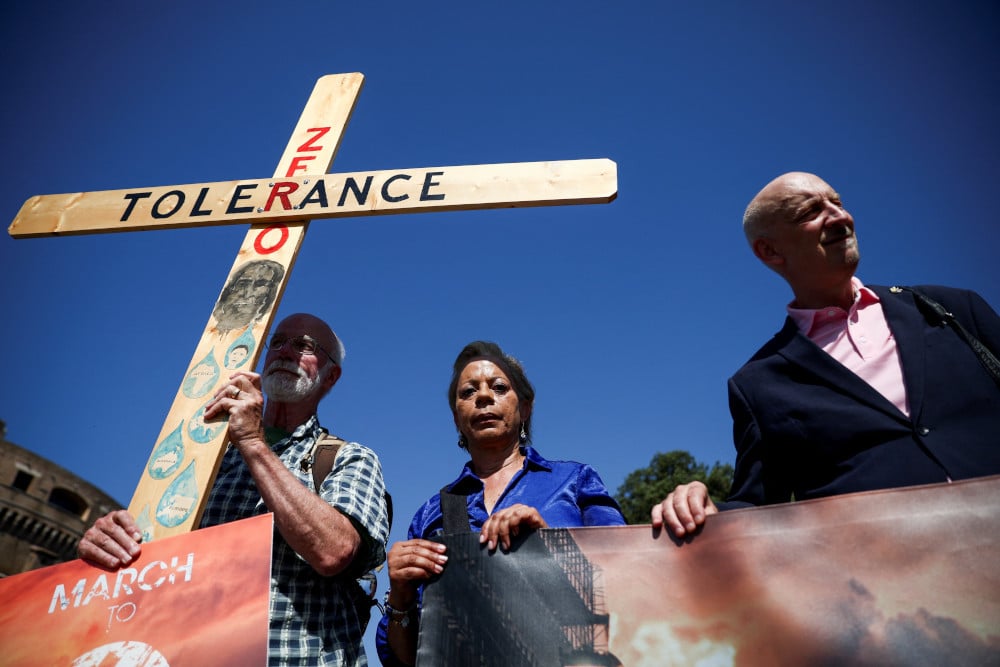
Pope Francis on March 15 appointed new leadership to his papal commission on clergy sexual abuse, naming a Colombian prelate and a former U.S. bishops’ conference official to run the group’s day-to-day operations.
The shake-up in leadership follows the resignation of one of the commission’s most prominent members and comes months after reports about the outgoing secretary’s previous financial dealings raised questions about his suitability to lead a group tasked with promoting best practices for preventing misconduct and abuse.
Oblate Fr. Andrew Small, a dual British and U.S. national, had served in an interim capacity as the No. 2 official at the Pontifical Commission for the Protection of Minors since 2021. He will be succeeded by Bishop Luis Manuel Alí Herrera, currently auxiliary bishop of Bogotá, Colombia, who Francis appointed as the group’s new secretary.
Alí, a psychologist, has already served as a member of the commission. Since 2022, he has worked as the secretary general of the Colombian bishops’ conference.
Serving alongside Herrera will be Teresa Kettelkamp, a former U.S. law enforcement official who previously led the office of Child and Youth Protection for the U.S. bishops. Kettelkamp, who Francis appointed as an adjunct secretary, has served as a member of the commission since 2018.
Boston Cardinal Sean O’Malley, who has served as the president of the commission since its creation by Francis in 2014, remains in that role. His mandate is expected to come to an end in June, when O’Malley reaches the age of 80, the mandatory retirement age for Catholic bishops.
In a statement, O’Malley said Ali is currently the longest serving member of the commission and that Kettelkamp had previously led one of the largest national safeguarding offices in the U.S. church.
« As Members of the Commission for many years, they reflect a strong focus on continuity of the work and agenda of the Commission since its expansion in 2022, » said O’Malley. « They are well known among the community of safeguarding professionals, and I am confident they will bring a team-based approach to our common work. »
The cardinal also praised what he called Small’s « vision and tenacity » in his work for the commission.
Questions have swirled about Small’s future for nearly a year, after an Associated Press investigation in May 2023 revealed details of financial dealings he undertook in his previous role as the national director of a Catholic organization in the U.S. tasked with directing money toward the church’s missions in developing countries.
The report detailed the transfer of at least $17 million from the Pontifical Mission Societies to an impact investing operation created by Small. The priest had initially continued to lead that operation while serving in the Vatican role.
Small has denied any financial wrongdoing and did not respond to NCR requests for comment last year in regard to the report.
The situation of the commission has sparked outrage from a number of leading abuse survivors and their advocates, including former members of the Vatican’s abuse commission. At least one of those members called for an internal investigation into Small’s financial dealings.
Three days after the initial AP report about Small was published, Francis went off script when speaking to a gathering of the Vatican’s missionary fundraisers to warn of the risk of corruption among their ranks.
« If spirituality is lacking and it’s only a matter of entrepreneurship, corruption comes in immediately, » the pope said at the time. « And we have seen that even today: In the newspapers, you see so many stories of alleged corruption in the name of the missionary nature of the church. »
NCR later confirmed that the pope directly referred to the AP article in a meeting with Spanish journalists earlier that same day.
Beyond the Pontifical Mission Societies, Small had also previously worked as a foreign policy adviser to the U.S. bishops’ conference.
While Small has been praised for his fundraising prowess — including overseeing moving the commission into a new office in an historic 16th-century palazzo in the center of Rome — former commission members repeatedly raised questions about his leadership. They have also raised questions about the group’s independence from Vatican structures, following a 2022 overhaul of its members and operations.
In March 2023, Jesuit Fr. Hans Zollner, a long-time adviser to the pope on clergy abuse, resigned from the commission after publicly raising serious questions about its leadership. At the time, O’Malley defended the body’s effectiveness, while pledging to address the concerns raised by Zollner.
In light of the upheaval, former commission member and abuse Irish survivor Marie Collins, along with former Irish President Mary McAleese, co-authored a letter to the pope in May 2023 alleging that the commission had suffered « existential damage, » and asking Francis to intervene to save the group.
Over the following months, ongoing questions about Small’s suitability for the role continued to emerge.
A Dec. 25, 2022, post by Small of him holding a 3-month-old puppy, describing himself as « feeling blissful in Vatican City » and with the text « Merry Christmas from me and Mancia. She’s 3 months old. Keeping the minors safe! » was widely circulated among both Vatican officials and abuse survivors. It prompted concerns about his use of social media, where he was seemingly joking about the issue of child protection.
Earlier this month, the commission met in Rome for its regularly scheduled plenary meeting and announced that it would soon release its « pilot annual report » on safeguarding policies at the pope’s request.
The report, which is expected in June, will offer « recommendations on how to move forward in achieving the goals of truth, justice, reparation » and to prevent child sex abuse in the church, said the commission.
